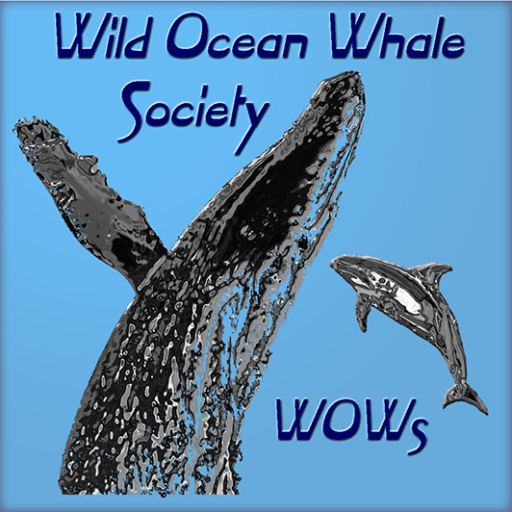
Wild Ocean Whale Society (WOWs)
Respect, Observe, Preserve
Rescue and Response
Human intervention is usually the last resort for wildlife rescue.
In general, cetaceans and pinnipeds are involved in different types of rescue situations and assistance needs.
Each wildlife species and situation is unique.
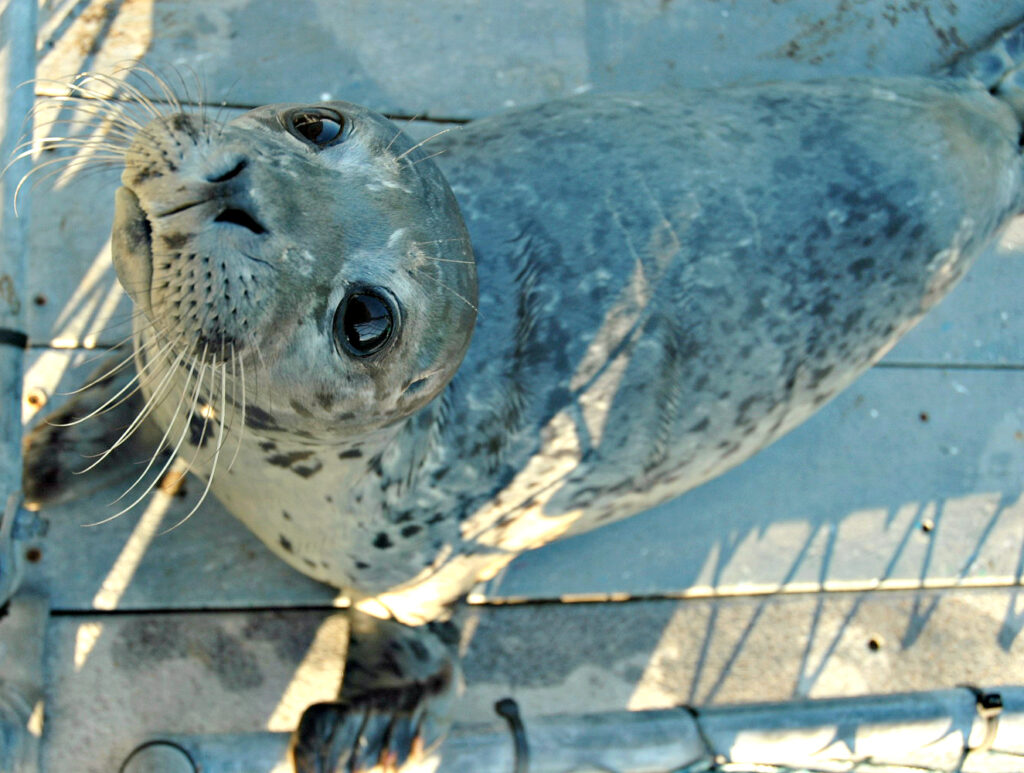
ANIMAL EMERGENCY INFORMATION
Report all marine mammals and sea turtles found entangled, stranded, distressed, or dead.
Call the toll-free DFO marine mammal incident reporting hotline at 1-800-465-4336 or email DFO.ORR-ONS.MPO@dfo-mpo.gc.ca.
Please also contact WOWs at 1-877-323-9776 and/or rescue@wows.org so we can monitor the situation and help in whatever way we can.
For cetaceans, stranding, entanglement and vessel strikes are the main circumstances that we are concerned about for rescue, response and monitoring. Humpback whales are more likely to get entangled due to their morphology (e.g. long pectoral flippers) and near coastal migration patterns. Dolphins and porpoise are sometimes seen stranded when they try to escape from predation. On the other hand, pinnipeds (seals and sealions), especially seal pups, are occasionally found abandoned, distressed, or injured, as well as entangled. Gunshot wounds, although rare, and highly illegal, are sometimes found on adult sea lions due to fisheries conflicts.
WOWs has many levels of involvement and collaboration with The Department of Fisheries and Oceans Canada (DFO), BC Conservation, and others, as well as a variety of rehabilitation facilities in responding to various rescue cases. For marine mammals, we work with DFO to give them up-to-date sightings reports of the targeted animals using our sightings data, tracking, and reports, and provide monitoring or rescue.
Rescue and Response Training
Level 1 & 2 Responder group is a response team that can assemble quickly to assist with any rescue, response or monitoring needs for marine mammals.
Additional training for the group was unfortunately put on hold due to the COVID-19 pandemic.
We aim to organize more training sessions to let the public know what to do when they see an animal that needs to be helped. These will be posted on our World of Whales events page.
In February 2020, in collaboration with DFO, we arranged a Large Whale Refloatation Training session in Powell River. Volunteers were trained in the step by step process required to assist a beached whale.
Training was to equip people in the area with the knowledge and skills to assist with any whale strandings that may occur in the future. Our local volunteers, DFO, Coast Guard and Tla’amin First Nations took part in the training.
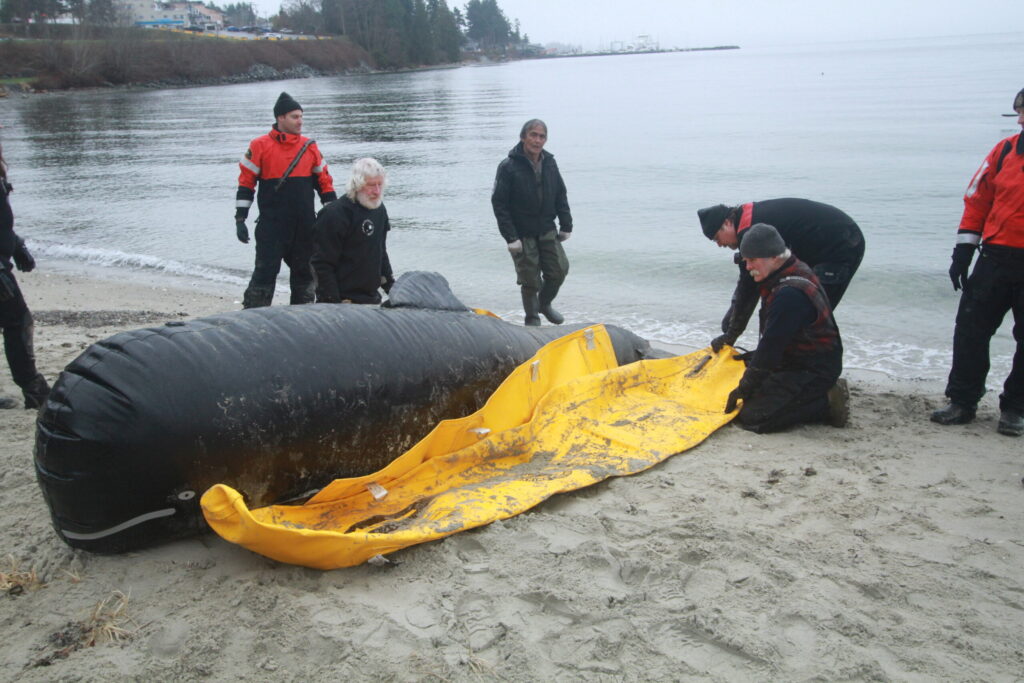
WOWs is regularly involved with rescue and response calls for wildlife in need ranging from seal pups, sea lions or birds to entangled or beached whales or dolphins. Here are just a few.
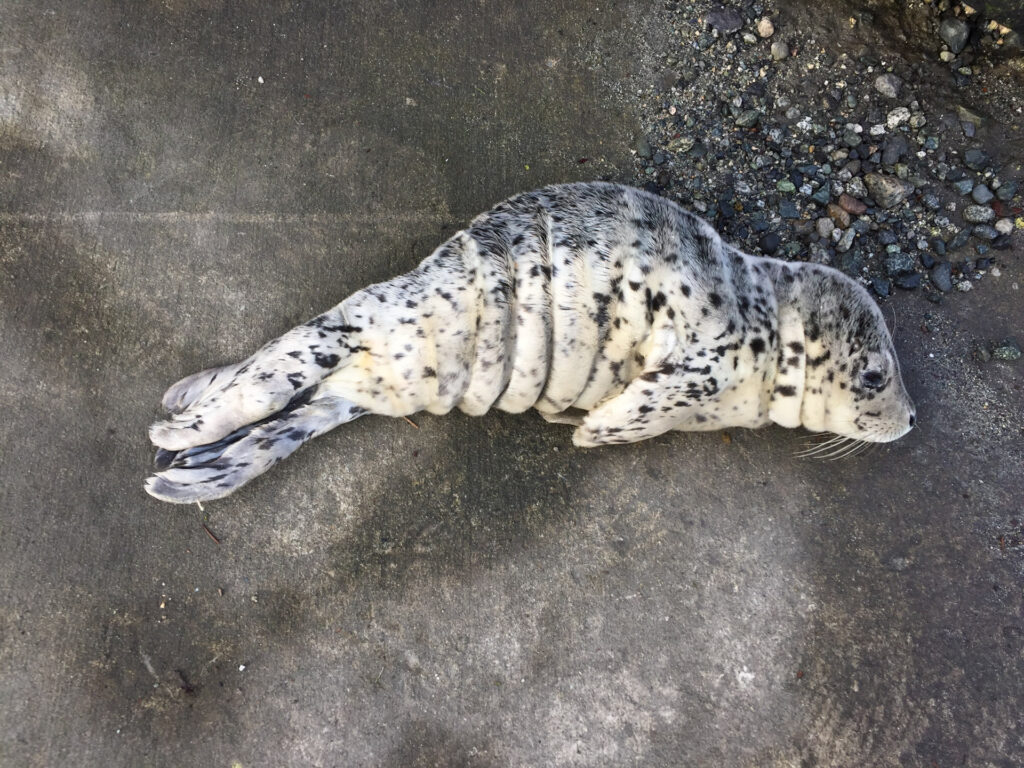
July 2020 a seal pup was found on the North Harbour Boat Launch in Powell River. The seal pup was in the same spot for about a day and appeared to be very dehydrated.
After arrangements were made by WOWs’ response team and the Vancouver Aquarium Marine Mammal Rehab center and Pacific Coastal Airlines, the seal was flown down to Vancouver to be cared for.
She spent 80 days in the care of the Marine Mammal Centre and was released in good health at Blackie Spit in Surrey. She was nicknamed Leila and was given a numbered tag for post release monitoring purposes.
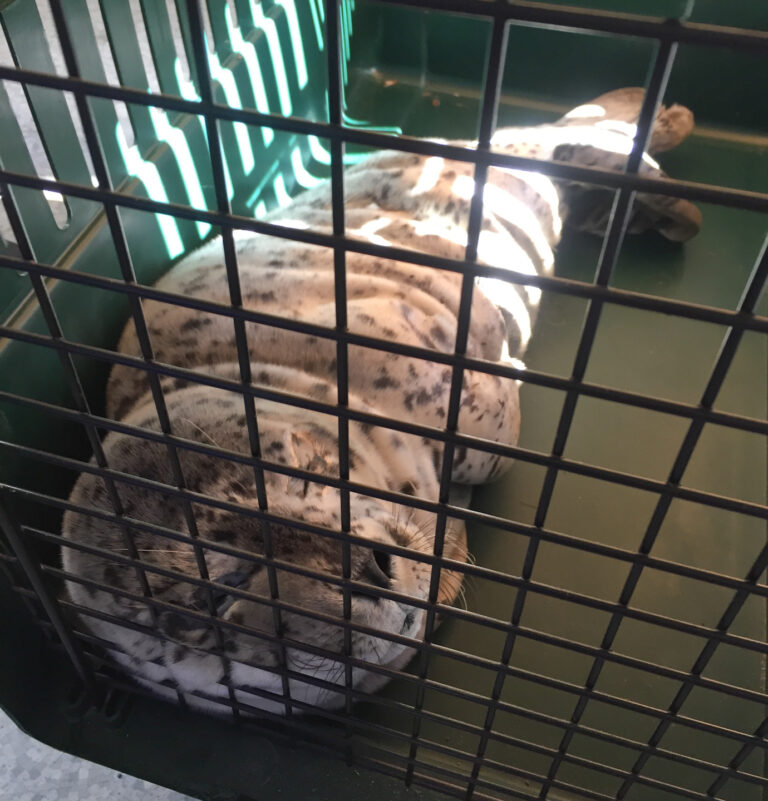
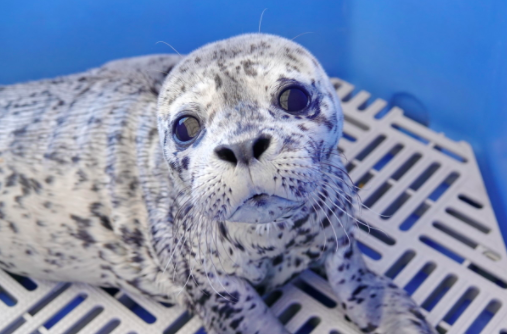
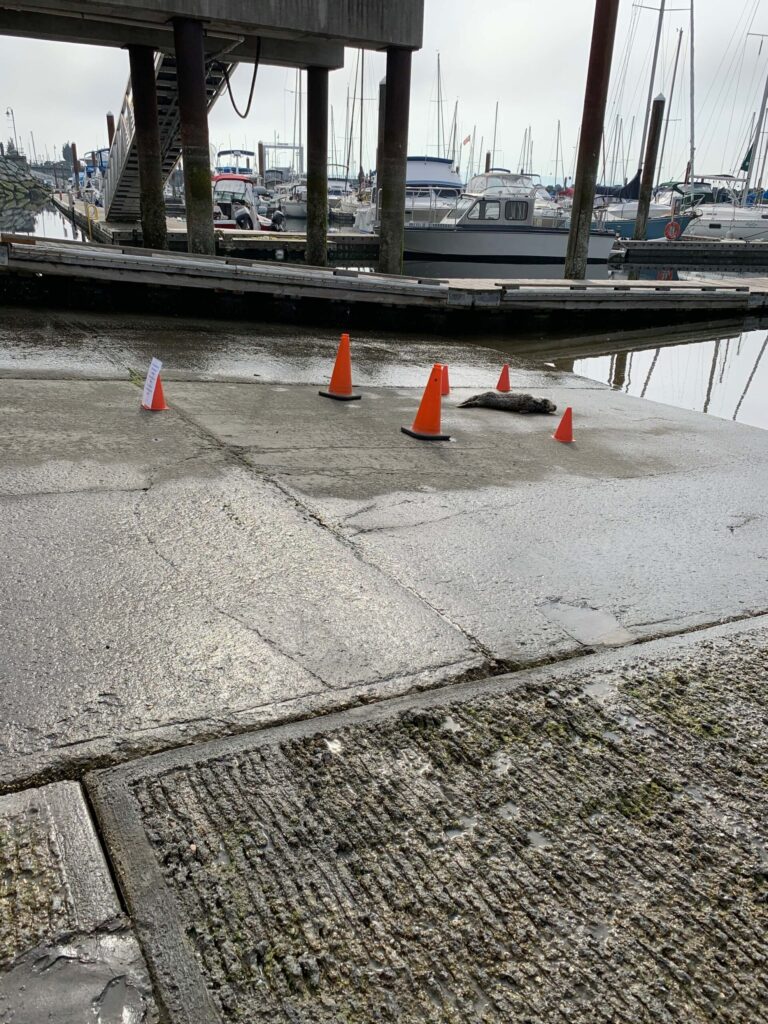
September 2020 a seal pup was observed for over 24 hours on a seadoo dock in Powell River, so a call was made to WOWs. The seal eventually left the dock, however reappeared on another dock the next day, then soon after positioned itself right in the middle of the boat launch, in the direct line of the cars backing up their boats. Due to the precarious position, volunteers tracked down orange cones from the city to place around the seal and remained close by, ensuring the seal was safe.
Because the seal had been weaned, was eating, and otherwise healthy, there wasn’t much to be done until authorized by DFO.
After tremendous efforts by volunteers to monitor and protect this seal, it was relocated after a total of 6 days of close monitoring, 3 days in the middle of the boat launch, to a more seal friendly location away from people. The seal has not been seen again so we can only imagine it is living it’s best seal life away from boat ramps and people!
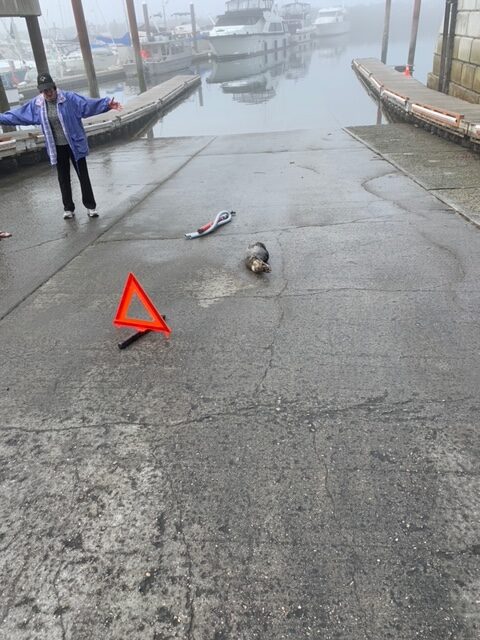
March 2020, just north of Powell River on the Tla’amin First Nations coastline, Transient Biggs Orca were hunting 16-17 Pacific White Sided Dolphins, driving them close to shore.
The dolphins became trapped in an old fish trap with the tide going out. They likely thought they could hide behind the rocky berm. With the tide dropping quickly, the dolphins became beached and were in need of assistance.
Local First Nations members together with some onlookers jumped in to help them. Using tarps and blankets they transported the dolphins safely out.
All the dolphins were saved and swam safely away in the opposite direction the Orca went.
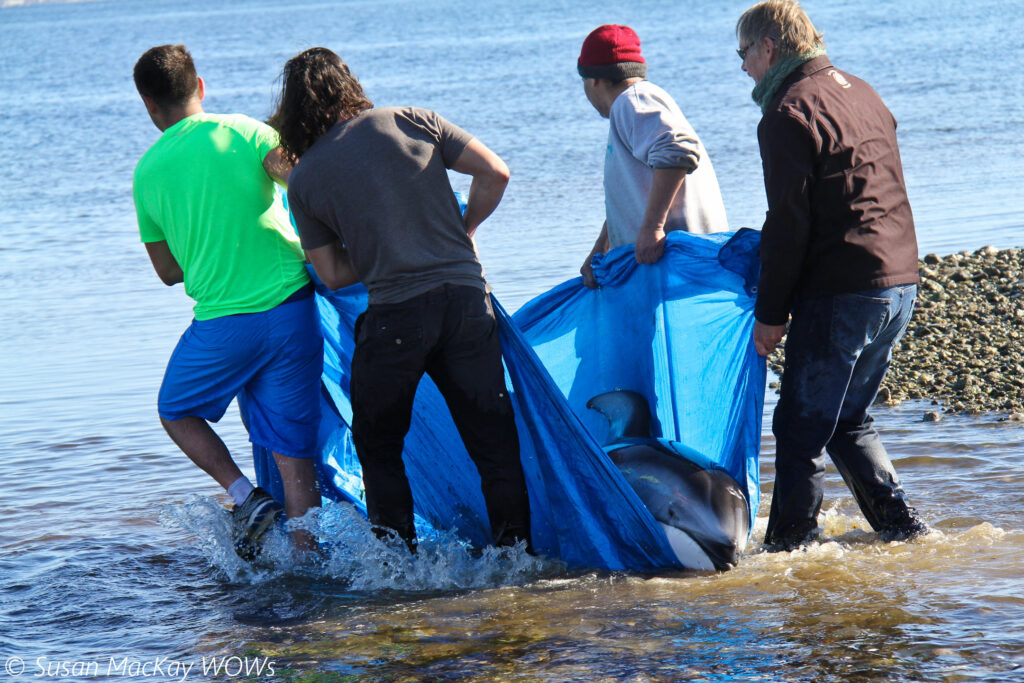
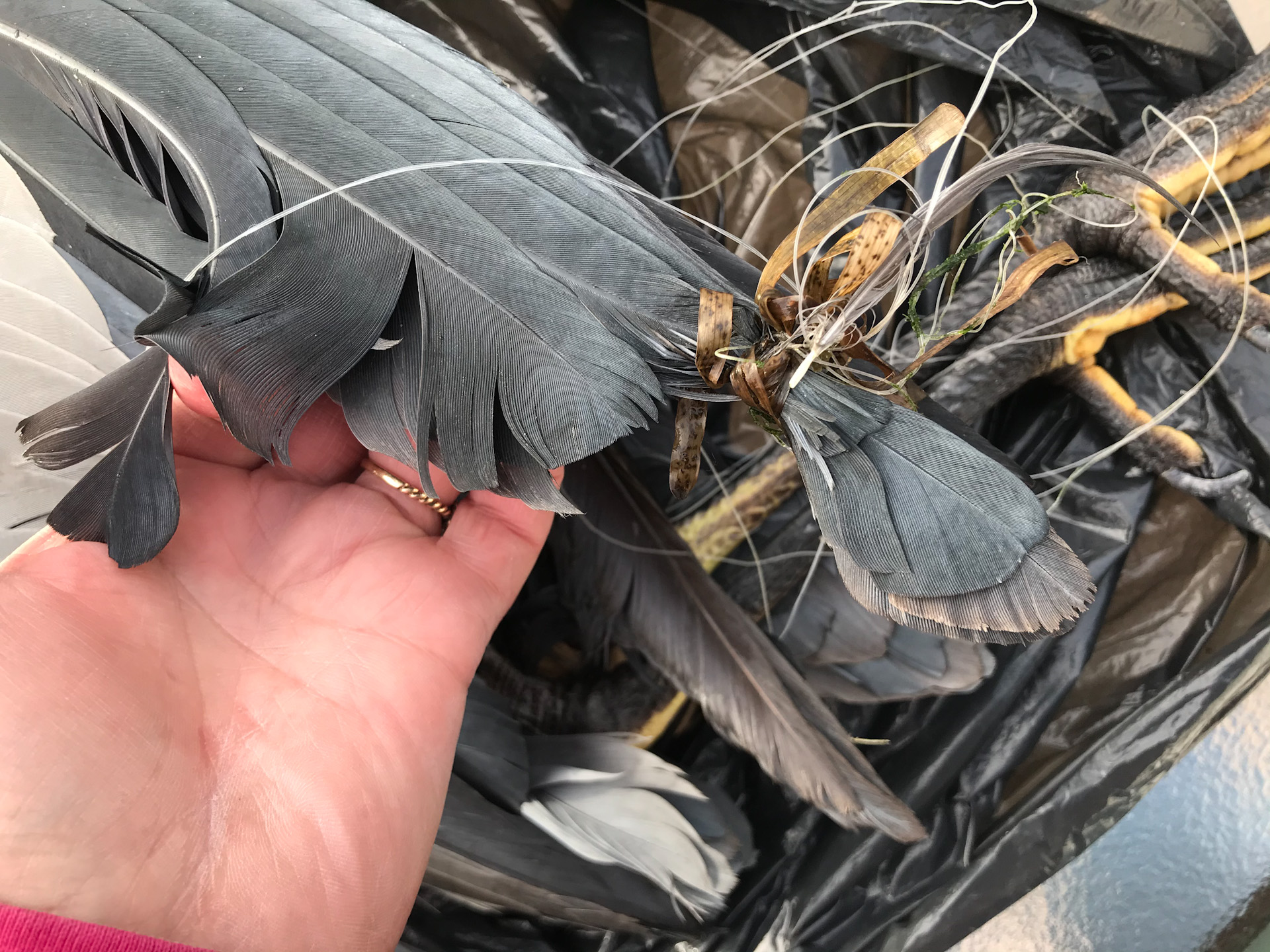
Unfortunately some of our calls come in just a bit too late…
Usually Susan, our Founder’s boat is ready to go, but this time it was in the shop. They could see the Heron still struggle as they got close, but by the time they arrived it had succumbed.
WOWs works extensively with Entanglement Mitigation and remind people to lose the loop!
Anything that is, or can form, a loop is a danger to ALL animals.
© Wild Ocean Whale Society (WOWs)